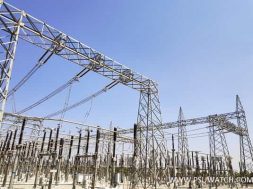
New government also pledges to oppose “carbon tax schemes in all of their forms.”
Weeks after the swearing in of Conservative Doug Ford as the new premier of Ontario, the new government has already pulled out of the province’s cap-and-trade program — putting companies out the $2.1 billion they’ve already sunk into carbon allowances — and begun cutting clean energy programs.
In a Thursday speech laying out the government’s agenda, Lieutenant Governor Elizabeth Dowdeswell said it would cut “unfair, unaffordable green energy contracts” in rural areas, reduce gas prices, lower energy bills, and oppose “other carbon tax schemes in all of their forms.”
This week the government announced the cancellation of Ontario’s Electric and Hydrogen Vehicle Incentive Program and the Electric Vehicle Charging Incentive Programs, formerly funded by cap-and-trade money.
The government also said this week it would introduce legislation to cancel the 18.45-megawatt White Pines wind project. In June it shut down an energy efficiency program funded through cap-and-trade money.
Chipping away at those programs and cutting cap-and-trade altogether squares Ford up for a fight with Canada’s federal government, which will impose the federal $20 per metric ton “backstop” carbon price by January if the province has no plan. Canada is in the midst of assembling policy that requires provinces to set their own carbon prices.
In 2017 Ontario, which is Canada’s largest province, signed on to a three-year agreement to trade emissions credits with California and Quebec that officially started January 1, 2018. The program lasted less than a year. In announcing the cap-and-trade cancellation earlier this month, Ford called the policy and carbon taxes “government cash grabs that do nothing for the environment.”
The new government’s rhetoric has drawn comparisons between Ford and U.S. President Donald Trump. In the same Thursday speech, the new government promised to “identify and eliminate duplication and waste” in its spending.
Cancellation of Ontario’s EV programs could constrict a budding market. Tesla Model 3s just arrived Canada in May, the only model from the upscale electric automaker that qualifies for a cash-back incentive from the province.
Rebates up to $14,000 were available for cars delivered, registered and plated before July 11, the date of the cancellation. Cars already queued up at dealerships or manufacturing orders already underway before July 11 will also be honored, if the cars are plated before September 10 of this year. Chargers purchased or installed before July 11 can also take advantage of the charging program if the application is submitted within 60 days of the cancellation.
Owners of the White Pines wind farm, which can provide annual power to an average of 3,005 homes, said they’d push back against government efforts to cancel the project, which is nearly finished.
Hartmut Broesamle, a board member at the project’s developer, WPD, said in a statement Wednesday that not honoring approvals “would send out a fatal signal to the entire economy.”
But shutting down projects is not without precedent. In 2013, the Liberal party canceled plans for two gas plants in Ontario that cost residents $1.1 billion.
The Green Ontario Fund also began in 2017, offering residents free installation for smart thermostats and subsidies for energy-saving retrofits. After the Ford government announced the cancellation of the Green Ontario Fund last month, Canadians clogged its Twitter page with frustrations and pleas to extend the deadline. Now the Green Ontario Fund program will accept applications if a construction agreement is in place before June 19, 2018 and the work is finished by October 31 of this year.
With a new government in charge, and campaign promises to fulfill, more threats to clean energy programs are expected to follow.













